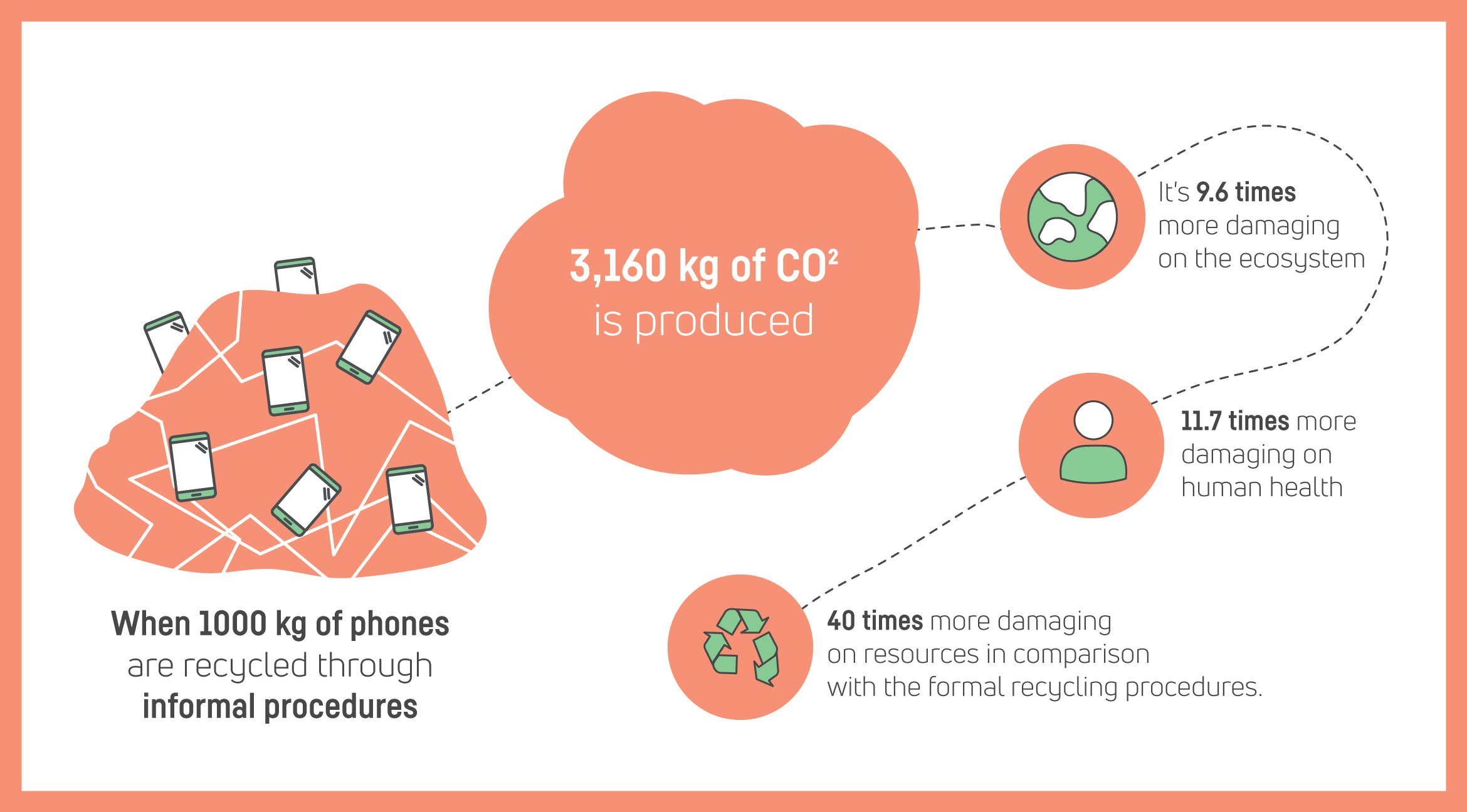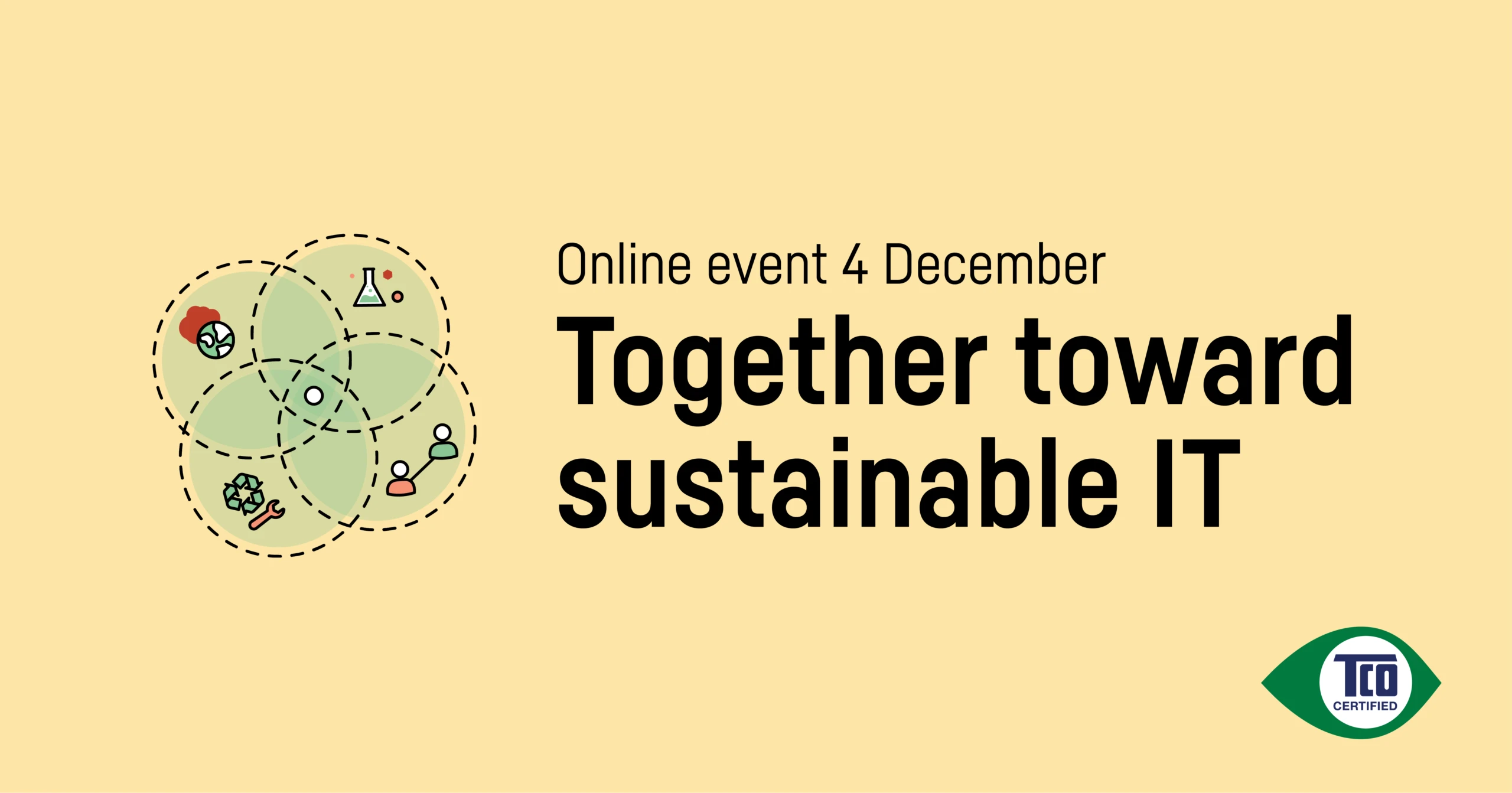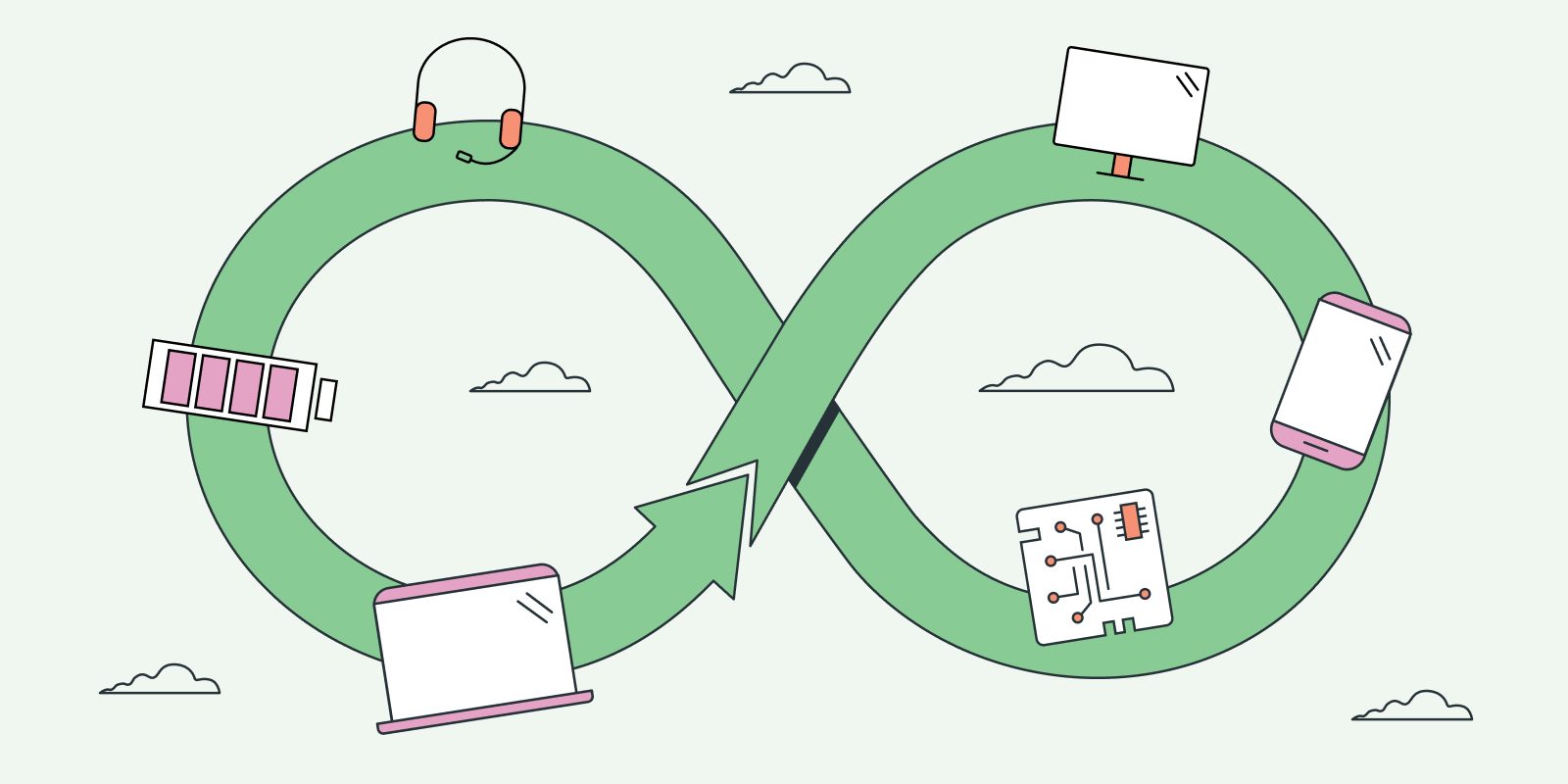With International E-Waste Day, October 14, fast approaching, we have spoken to MSc student Kean Ming Yong about the environmental impact of the formal versus the informal recycling sector. Kean recently conducted a comparative life cycle assessment study of informal and formal recycling procedures of mobile phones at Vrije University in Amsterdam.
When you have read this post, try our E-Waste quiz and test your knowledge on this topic.
Can you introduce yourself and why you have chosen to look into e-waste?
Of course! I’m Kean and have recently graduated from my Masters programme in Environmental Resource Management. In my research, I investigated the impact of e-waste on human health and the environment because I wanted to understand more about what happened to electronic products after we have used and discarded them.
Why are you interested in e-waste?
E-waste is currently the fastest growing waste stream in the world. I was shocked to discover that almost 50 million tonnes of e-waste is discarded every year. Only a small percentage of this is recycled, which means that the majority of waste is not recycled for their valuable resources. This has huge implications not only on the natural resources, but also on the environment. With big challenges, there are also huge opportunities in order to make this waste stream more circular.
Can you tell us a little bit about the history of e-waste? When did people realize it was an issue and how did the discussion come to light?
Electronic waste has been around for several decades. However, it became clear that there was an urgent need for proper recycling when the effects of improper disposal started to be seen in the environment. When electronics are dumped or disposed of inappropriately, the chemicals within electronics are absorbed into the soil, groundwater, and into the air. Several legal frameworks and agreements, such as the WEEE directive and Basel Convention, were established in order to solve this issue. However, much still has to be done to recycle electronics in a proper manner.
What are the main issues you see with recycling today?
There is an immense amount of electronic products being produced, used, and continually discarded on a global level. A lot of people are not aware that their electronics, such as their mobile phone, contain many finite precious metals such as gold, palladium and silver. When their phones end up in landfill, these materials are not recovered, leading to further depletion of our natural resources. Another issue is when e-waste is exported to developing countries, where it is often dumped in open fields and dismantled under horrific conditions and posing a severe risk to human health and the environment.
Tell us how formal and informal recycling works?
The process for recycling involves the dismantling, shredding, and/or smelting electronics to recover valuable materials. Typically, developed countries have access to proper recycling facilities that ensure electronics are recycled in a proper manner. However, developing countries tend not to have easy access to these facilities which leads to the use of informal recycling techniques such as the burning and leaching of materials.
What are the main problems with informal recycling?
Not only is the recovery of valuable materials often very limited, it can also lead to severe environmental pollution and harm to the health of workers and the people who live around informal recycling sites.

Key findings from Kean Ming Yong’s studies about the environmental impact of the formal versus the informal recycling sector.
What are the environmental benefits of using formal recycling as opposed to informal recycling?
There is a much more recovery of materials when e-waste is recycled in a proper manner. This material can be reused and can decrease the need of mining new natural resources. Another benefit of formal recycling is that harmful toxins that exist in e-waste are heavily reduced by being responsibly taken care of in the recycling process, minimising the harm to the environment.
Your study focused on mobile phones, but was there anything more broadly that surprised you?
Yes, there were so many things. I was surprised by the crude informal practices that mostly take place in developing countries. The aim of informal recyclers is to recover gold from phones, while the rest of the phone is either dumped or incinerated. This means that a lot of valuable materials are not retrieved at all which leads to huge impacts on the environment.
What is your advice to purchasers that want to take responsibility for their e-waste?
I would advise not to throw away your electronic products in the rubbish bin, but rather use it as long as possible, extend its useful lifetime, or find another purpose for it. If you want to recycle it properly, then you should be able to find collection points nearby where these products can be handed in.
TCO Certified Edge, E-waste Compensated
TCO Certified Edge, E-waste Compensated gives organizations all over the world a powerful tool to combat e-waste, and the opportunity to make a real difference for people affected by today’s unsustainable approach to electronics. This way, you contribute to the solution of the e-waste problem and, at the same time, you get products independently verified to all other criteria in TCO Certified.




